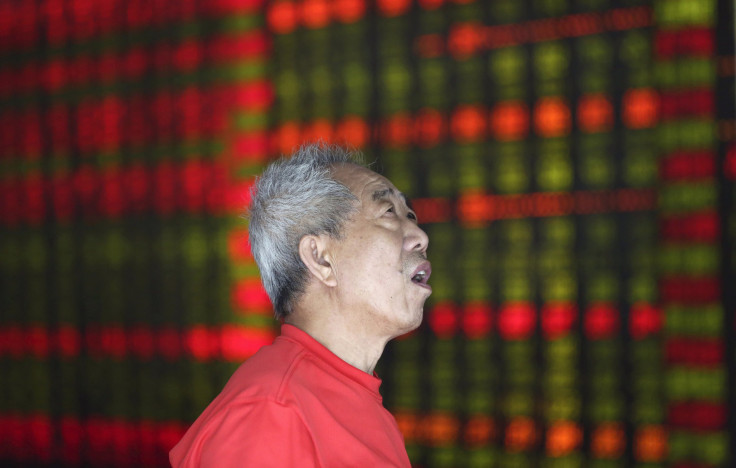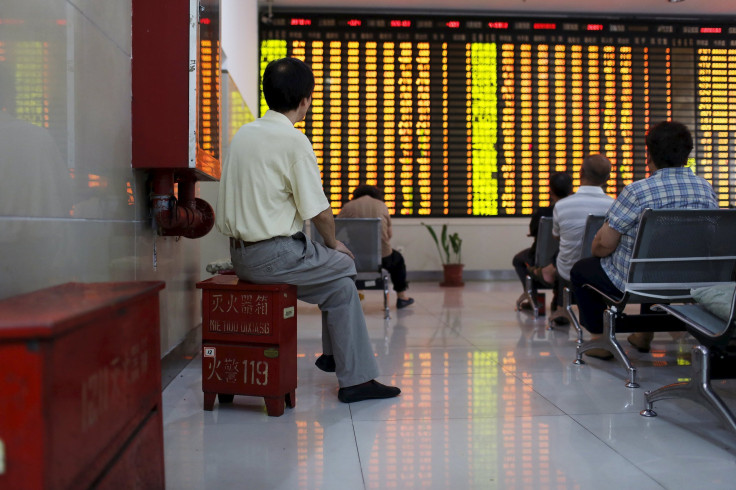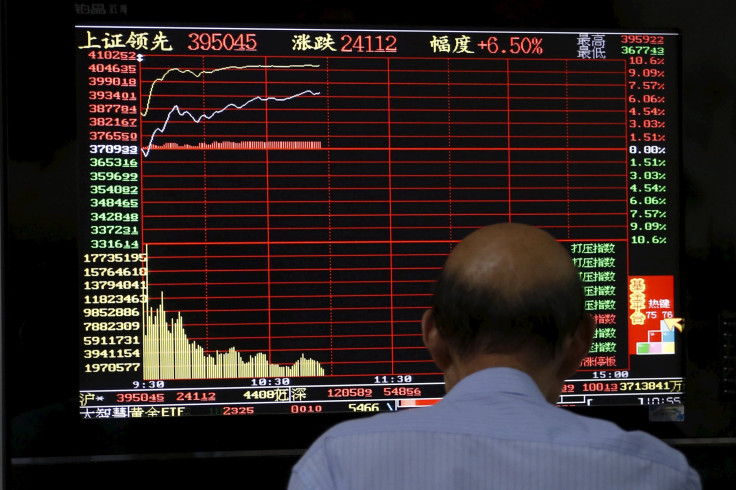A Tale Of Two Investors: Market Fever Remains On China's Stock Markets

SHANGHAI -- Vincent Li used to learn economics out of library books – now he’s receiving a crash course in market realities from the Chinese government. The 22-year-old, a recent humanities graduate from a university in Shanghai, remembers his early lessons in investment.
“I used to borrow a lot of books from the school library,” he says, “I always remember one called ‘If it’s raining in Brazil, buy Starbucks.’”
Last fall, Li had the chance to put theory into practice when a colleague offered him the chance to join a group of friends who were buying shares in China’s e-commerce giant Alibaba when it listed on the New York Stock Exchange. Li’s risk paid off. After putting in around $1000," just as an experiment," he and his friends sold up a couple of months later, when the stock had risen by 25 percent.
When the Shanghai stock market took off earlier this year Li and his friends set up a group on social media site WeChat to discuss the markets.
“Everyone was very excited,” he recalls. “One of our friends is quite an expert on stocks so we all listened to him. About twenty of us began buying shares – we thought we could ‘buy and learn’ as we went along.”
Li invested $8000 -- the proceeds from his Alibaba sale along with his savings– in late March, as China’s market surged. Four months on, he admits his process “wasn’t very logical. We weren’t at all expert – we just saw a stock rising, and then bought in – then we tried to sell when it rose to a certain level.”
By the time the market peaked in the first half of June, Li had done pretty well. His shares were up around 20 percent, and one of his friends suggested selling.
“So I sold up some of my holding,” he says, “and made some money. But unfortunately, a couple of weeks later, I decided to buy back in.”

Li was sure that after two weeks of declines, the market would soon rebound. But after share values continued to drop he’s decided that the best strategy is to hold tight. Most of his money is still tied up in the market – even after the market climbed back this week, he’s decided to wait a while longer.
Li has the luxury of waiting -- he didn’t borrow money to invest, as many others did, leaving them exposed when prices fell, forcing many to sell their stocks to repay loans. Li's grateful for government intervention in the markets but knows there are no guarantees: “The market may fall again -- so I think we’ll all be more careful in the future – we’ve learned a lesson,” he says.
But even a lesson learned can’t always prevent people from making the same mistake twice.

Jane Zhang is 29 and works as an editor in a publishing company in Shanghai.
For Zhang market volatility is nothing new. She first bought shares in the market boom of 2008.
“I bought some shares when I was still a student. But then the markets fell, and I lost some money. So I stopped buying shares, and said I’d never do it again.”
In the years that followed, Zhang got married, got a job, and tried other ways of investing her spare capital. But the lure of the market was hard to resist.
Last year when the market began to rise, Zhang started to invest again: “I guess I must have forgotten about the previous time!”
Zhang was relatively lucky – she got back into the stock market when it was only just coming out of a four year slump. Her investment of some 100,000 yuan (around $15,000) soon rose by fifty percent. She sold some shares to capitalize on this –then bought some more as the markets continued to rise.
The second investment didn’t work out so well, however. As the markets fell, Zhang hung onto her shares, feeling sure there would be a rebound. The fall was far deeper than she had imagined – but last Friday, as shares completed a ten per cent rebound for the week, she sold off most of her stocks. It left her with just “a small profit” from the previous year’s rollercoaster ride.
Zhang’s experiences haven’t put her off the market completely. She’d be happy if she could invest abroad “because I think foreign markets are more stable,” but this is impossible since China has restricted the opportunities for its citizens to do so.
She plans to invest in Chinese markets – she even bought some more shares late last week as the market rebounded.
Zhang doesn’t think the management of China’s markets is very good, but says she doesn’t understand politics, and isn’t blaming anyone. “The [Chinese] government sees the markets as very important to the economy, so I still have some faith in their development in the long-term.”
For now, she continues to check stock prices online at work, an activity she shares with most of her colleagues. China’s stock market may have cooled but market fever shows no signs of going away.
© Copyright IBTimes 2025. All rights reserved.





















